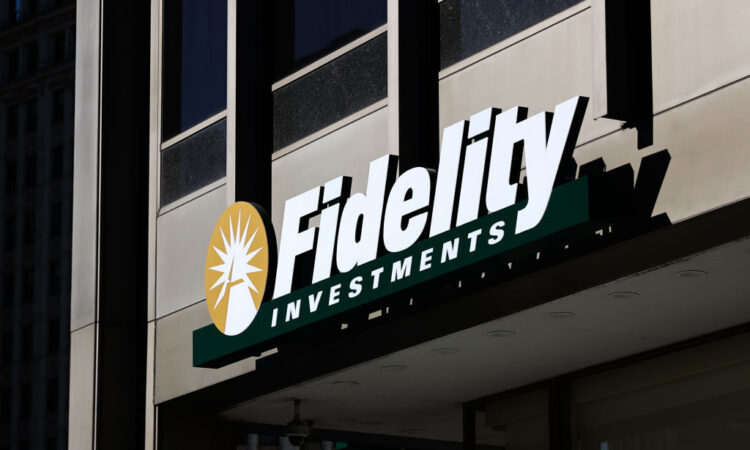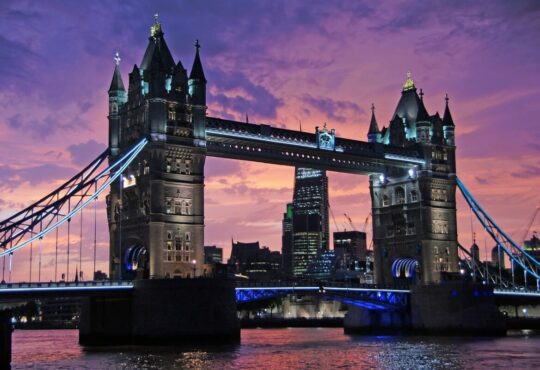
A significant portion of the money bankrolling the Heritage Foundation — the conservative think tank behind the sweeping Project 2025 initiative to reshape the federal government if former president Donald Trump is reelected — comes from a growing network of shadowy charity groups run by the nation’s top financial firms that use a legal carve-out to keep their ultrawealthy donors hidden.
These groups, called donor-advised funds, have donated more than $18 million to the Heritage Foundation since 2020, according to a new Lever analysis and research by the Institute for Policy Studies — and the amount is increasing.
In total, donor-advised funds held nearly $230 billion in assets in 2022, $52 billion of which was donated to nonprofits including the Heritage Foundation. Such funds now make up seven of the top ten public charities in the country. What’s more, they have been found to distribute money to anti-government and hate groups at more than three times the rate of other charitable sources, according to a study published this May.
The rapid rise of donor-advised funds — charitable investment accounts run by finance giants like Fidelity Investments, Charles Schwab, and Vanguard — signals a new stage in the dark-money takeover of the political system. Wall Street is now helping the nation’s elite funnel vast amounts of cash to extremist causes with zero transparency or tax repercussions — and it’s spending millions lobbying Congress to keep it that way.
While private foundations like the Bill and Melinda Gates Foundation and the Ford Foundation are required to disclose all of their charitable donations and the recipients, wealthy philanthropists who want anonymity — and a tax break — can instead donate to a donor-advised fund.
Once money is in a donor-advised fund, the original donor can send it to any charity of their choosing, but the ultimate source of the money, and the amount, is completely obscured. It’s an appealing design for those wishing to avoid public scrutiny.
While the Heritage Foundation — like other nonprofits — does not have to publicly disclose its individual private donors, routing the money through a donor-advised fund provides donors an additional layer of anonymity, as well as unique tax benefits. And since financial firms like Fidelity and Vanguard that manage the funds also score tax benefits from the arrangement, they have an incentive to promote these funds to their wealthy clients.
Unlike politically active dark-money nonprofits — 501(c)(4)s — donor-advised funds cannot contribute directly to campaigns or politicians. But increasingly, they are part of a larger network of dark money where the lines between charity and political causes are becoming blurred.
Donor-advised funds can contribute to the Heritage Foundation, a 501(c)(3) charitable nonprofit. The Heritage Foundation can then funnel money toward political campaigns through its separate “sister” dark-money arm, Heritage Action for America.
“The joint presence of a 501(c)(4) organization and an affiliated charity has become an increasingly common phenomenon that makes the ability to ‘follow the money’ and separate charitable from political that much more difficult,” said Brian Mittendorf, an accounting professor at Ohio State University and coauthor on the study on donor-advised funds and hate groups.
From 2020 to 2022, the Heritage Foundation received around $14 million in donations from donor-advised funds, according to an analysis set to be published by the Institute for Policy Studies, a progressive think tank, and shared exclusively with the Lever. Contributions from these funds made up 6 percent of the foundation’s total donations and were second only to donations from private foundations such as the Adolph Coors Foundation, the beer titan’s family charity, which is a Heritage donor.
Since then, the amount coming from donor-advised funds has grown. According to the Lever’s analysis of nonprofit tax filings, four of the largest donor-advised fund sponsors — investment firms Vanguard, Fidelity, and Charles Schwab, along with the nonprofit National Philanthropic Trust — gave even more to the Heritage Foundation in 2023 — donating collectively $4.3 million, up from $2.7 million in 2022.
The amount of giving from affluent anonymous donors to the Heritage Foundation just as it launches a far-reaching right-wing political project is a “poster child of why donor-advised funds can pose a threat to democracy,” said Bella DeVaan, the associate director of Charity Reform Initiative at the Institute for Policy Studies, a think tank that studies inequality.
This May, the Internal Revenue Service (IRS) held a public hearing to discuss proposals to strengthen restrictions around donor-advised funds — but none of the ideas touched on increasing donor transparency.
That didn’t stop one donor-advised fund manager from warning the IRS that any such reforms would result in “negative, unintended consequences, including the reduction of American charitable giving.”
The growing role of donor-advised funds in politics is alarming, said Mittendorf.
“The lines between what’s political and what’s charitable have become quite blurred over the years,” he said. “The whole donor-advised fund space has essentially taken over philanthropy without people realizing it.”
John Rockefeller Jr, an American philanthropist and heir to the Rockefeller oil fortune, helped manage the first donor-advised fund in the 1930s to assist people in supporting charities they were passionate about. But these funds didn’t grow in popularity until 1991, when Fidelity Investments — one of the largest mutual fund companies in the country — created the nonprofit Fidelity Charitable.
Fidelity Charitable and other donor-advised fund managers offered people an easy way to anonymously donate to a charity of their choosing — all the while scoring an immediate tax deduction and nourishing an investment that could grow tax-free.
“[Donor-advised funds] obscure who the donor is,” said Mittendorf. “A donor who doesn’t want people to know that they’re the donor, that’s a very effective way to do it, to shuttle [money] through a [fund].”
Furthermore, unlike private charitable foundations, which need to donate at least 5 percent of their assets annually, there are no deadlines for when the money in a donor-advised fund must be disbursed. That means that cash in these funds can reside there indefinitely, all the while accruing interest.
The arrangement might benefit the original donor, but it is also advantageous for the financial corporations that manage the funds. For example, while the donor-advised funds managed by Fidelity Investments are part of Fidelity Charitable, technically a separate nonprofit, they are usually invested back into Fidelity’s mutual funds.
“Most of [the funds] are invested in the mutual funds from which . . . Fidelity Investments draws revenue,” said Alan Cantor, a longtime nonprofit consultant and critic of donor-advised funds based in New Hampshire.
Donor-advised funds have become particularly popular among those looking to discreetly donate to anti-government and other extremist causes without damaging their reputations. Over the years, dozens of organizations designated as hate groups by the civil rights organization Southern Poverty Law Center have received hundreds of millions of dollars from donor-advised funds.
In total, these funds reportedly donated $131.4 million to extremist groups between 2020 and 2022, comprising more than 25 percent of all private and nonprofit contributions to extremist organizations.
The ascendance of such donor-advised fund schemes contradicts the inherent purpose of tax-deductible charitable donations, said Helen Flannery, associate fellow at the Institute of Policy Studies and coauthor of the study on donor-advised funds and hate groups.
“The reason we as a public have agreed to give tax deductions for charitable giving is because, in exchange for those tax deductions, that money is supposed to be used for a common public benefit,” said Flannery. “It’s not supposed to be used to advance specific personal priorities or agendas.”
Meanwhile, the money donated to the Heritage Foundation is now supporting Project 2025, the organization’s political initiative that is pushing for a far-right reimagining of the country as part of a second Trump presidency. The plan’s many proposals include dismantling the National Oceanic and Atmospheric Association, barring US citizens from receiving federal housing aid if they reside with noncitizens, disassembling services for LGBTQ individuals, and tracking confidential medical information of patients who seek abortion services, among many other endeavors.
Any attempt to make donor-advised funds more transparent has come up against aggressive lobbying from the Wall Street investment firms that run the largest of these funds. Groups that advocate for donor-advised funds and the philanthropic industry have also lobbied against charity reform.
“When you think about all the people that are making money off of these — and the convenience it offers wealthy donors — you can see why reform efforts don’t go anywhere,” said Cantor, the nonprofit consultant.
From 2021 to 2023, thirteen investment firms, along with advocates for donor-advised funds and the philanthropic industry, spent more than $4.6 million on lobbying related to donor-advised funds and other matters, according to a report by Flannery.
In 2021, federal lawmakers introduced the Accelerating Charitable Efforts, or ACE, Act, which proposed a slate of donor-advised fund reforms. The bill would have introduced penalties for such funds if the assets were not distributed within fifteen years of the original donation, though it stopped short of requiring additional transparency around donors.
The legislation drew a firestorm of opposition from philanthropic groups and the financial giants that benefit from donor-advised funds. Groups that lined up to lobby on the bill in 2021 and 2022 included Charles Schwab — which spent $3.1 million lobbying in 2022 — as well as Vanguard’s charitable arm and the Council on Foundations, which represents private foundations around the country.
“If you’re a politician, you say, ‘I don’t want to take on all these powerful vested interests,’” Cantor said.
The bill died in committee, and subsequent attempts to push through similar legislation have also failed.
If Project 2025’s vision for the country is brought to fruition, it will be even more difficult to crack down on donor-advised funds and the larger dark-money web in which they operate. The initiative’s nine-hundred-page tome of far-right policy proposals suggests overhauling the tax system and limiting the resources for tax enforcement — likely making oversight of charity operations more difficult.
Furthermore, Project 2025 is proposing a suite of reforms to the Federal Election Commission, the agency tasked with overseeing campaign spending, that would gut its authority. The manifesto proposes hikes to campaign contribution limits and weakening reporting requirements that could open the floodgates to even more money in politics. It also seeks to limit federal prosecutors’ ability to enforce election laws by requiring approval from the interminably deadlocked election commission before authorities can pursue charges.
And while the Heritage Foundation’s anonymous donor-advised fund contributors watch the fruit of their efforts, they’re getting a tax break at the same time.
“We need congressional intervention,” said DeVaan of the Institute for Policy Studies, noting that because the tax code was at the root of the issue, the IRS and other regulators had limited power to rein in dark money in philanthropy.
“All dark-money and all donor-advised funds need to be more transparent,” DeVaan said.






